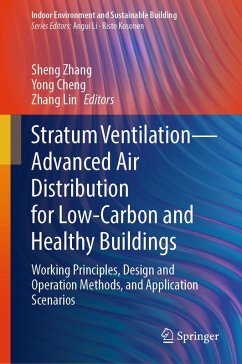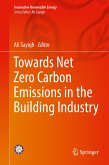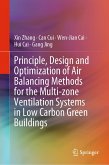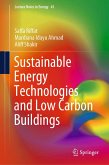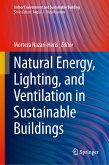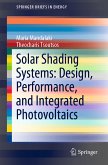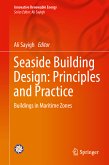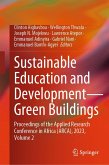This book investigates the creation of healthy and thermally comfortable built environments in a low-carbon manner with advanced air distribution, i.e., stratum ventilation. Stratum ventilation efficiently supplies conditioned and clean air to the head level of occupants for thermal comfort and inhaled air quality and largely reduces energy consumption and CO2 emission, e.g., by 44% and 32%, respectively, compared with the conventional air distribution method. This book provides the working principles, performance evaluations methods, design methods, operation methods, and different application scenarios (particularly highlighting airborne infection risk control of respiratory diseases and integrated application with renewable energy) of stratum ventilation, to provide theoretical understandings and technical guidelines of stratum ventilation. The book is intended for undergraduate and graduate students, researchers, and engineers who are interested in cutting-edge technologies of livable and sustainable built environments.
Dieser Download kann aus rechtlichen Gründen nur mit Rechnungsadresse in A, B, BG, CY, CZ, D, DK, EW, E, FIN, F, GR, HR, H, IRL, I, LT, L, LR, M, NL, PL, P, R, S, SLO, SK ausgeliefert werden.

